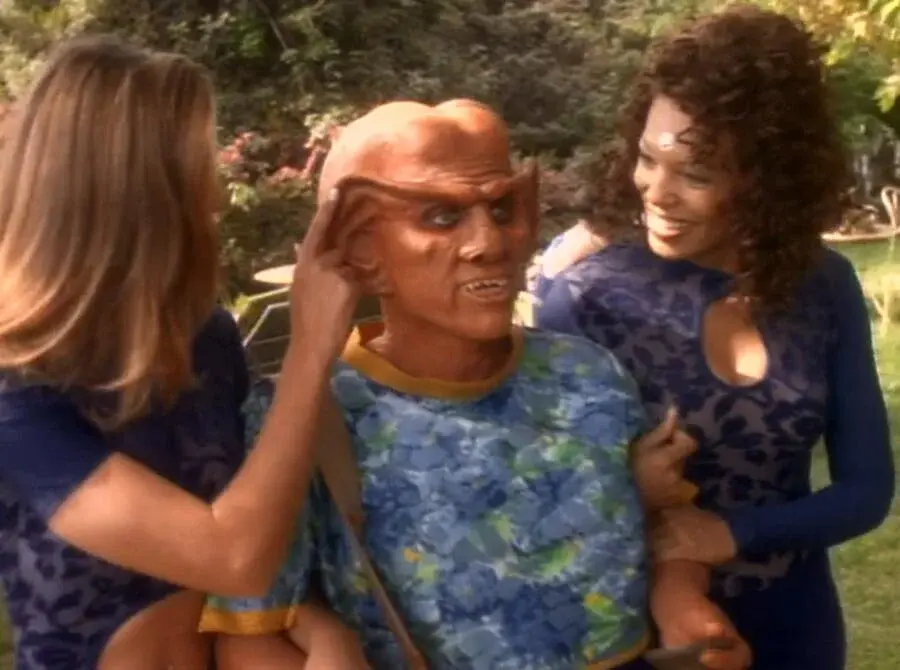It is actually wild to think about the progress humanity has made in the last hundred years or so, we went from the Wright brothers to walking on the moon in a human lifetime.
The only thing separating modern man from caveman is education, and that explains an awful lot about the world.
Writing is hella OP. Please nerf.
The Secret Superpower of Civilization.
(Reading is also kinda neat!)
deleted by creator
Technological progress is exponential.
Law of adjacent possibilities
I think that’s true for only a planet with indefinite resources. We haven’t really hit many caps yet, but I believe things will start to slow down within a lifetime.
We’re also, in my view, hitting the limits of what certain technologies can do. Internal combustion engines, for example, are near the limit of what they can do as far as efficiency is concerned. We’re also bumping into the limits as far as semiconductors are concerned.
There’s also diminishing returns with trying to wring out the very last piece of efficiency from a system, so yes, I do think we’re going to see a plateau in terms of technological progress, at least in some areas.
This is true for older technologies.
Like combustion as you said, we used it a lot and pretty much designed it the best we can with the materials we know and have. But there will be completely new technologies opening up, like maybe fusion. Or solar we know already since a while but made major improvements the last decade and will probably improve it even more.
I was more thinking about how we had this technology rush. I think it is mostly due to the use of fossil fuels and therefore “incredible cheap” energy which also led to humans reproduce a lot. (incredible cheap in quotation marks, because we will probably have to pay the real price which is environmental damage and a modified atmosphere)
When you have a world with 3 times (random number based on nothing) more people you also have 3 times more great artists, scientists, etc. Of course only, if society stays more or less the same. Imagine how many great works we could have if the majority of great minds wasn’t preoccupied paying for food and a place to stay like in a hamster wheel.
We already are. There’s a reason you don’t see intel and amd chips past 5ghz, for example.
Or how modern cars are still functionally the same from 10 years ago just with more spyware and bloat.
The ones that aren’t hybrid or EV, at least.
Mate, the first Prius came out in 2006. It’s 2024. That’s some stagnant ass growth if you ask me.
Actually the SECOND GEN prius came out in 2003. The first gen prius came out in 01 in Japan.
And? Look at the specs for a current gen prius, they’re bigger, faster, more efficient, plug in hybrid, and have better tech. They’ve come a long way.
And Bezos got to ride his penisrocket to the edge of space
deleted by creator
progress humanity has made
That word implies a positive growth. Technological advancement seems like a better fit. Although we did that, and many tinkering with productivity, our life standarts was not consistent with that.
I would like you to look at the relative populations of slaves to free people, the rate of death by starvation, the rate of death by malaria, the rate of death in childbirth (both parent and child), and tell me we haven’t made significant positive growth.
It depends on if you watch one country or the world as the whole. I’m now in t-shirt, pants and throusers made somewhere in Asia or Africa. I don’t feel they have these rates just like ours. I’m a part of an elite to speak English language in my hole. These workers who produced everything in my house didn’t have that time to learn a foreign language, nor they have time to shitpost in it. I feel a little pity for when I despised to work with dangerous chemicals for a while in the past, and they did so for years, died from illneses caused by it, worked with bare hands and without respiratory protection, just to have a meal on the table. There are bad things happening we are isolated from, but it doesn’t mean theybdon’t happen.
I never said bad things don’t happen. Bad things happen all the time, constantly. The poorest people on earth have a lower quality of life relative to the wealthiest people on Earth than ever before in history, but that is largely because the wealthiest people on earth have never been as wealthy as they are now. I reckon there are few places where the quality of life right now is significantly worse than it was in that location 1,000 years ago.
The one exception, of course, is climate change. Hundreds of millions, potentially billions of people will be killed within the next couple of centuries due to anthropogenic climate change. I still hold that humanity as a whole is making progress, largely because I can’t think of a single empire in the past that wouldn’t exploit fossil fuels more than we do now, if they knew how to.
What’s even more of a mind-fuck is that on cosmological scales all that has happened in such a briefly miniscule time period that it might as well have not happened at all
deleted by creator
Exponential growth. That first 195,000 years was every tribe figuring out super basic stuff we take for granted, then gradually building upon that with other basic stuff we take for granted. Even before agriculture, pottery, metallurgy, herbal medicine, the basic knowledge these were built from took millennia to work out and pass down.
The real secret sauce was communication. Once tribes started sharing knowledge, suddenly the base of knowledge to built on got higher, and broader. Written language, better means of travel, this sped up the process. Electronic communication has made that knowledge base pretty much universally accessible and combinable.
Progress is faster when you’re not limited to what your direct tribal ancestors figured out and passed down.
Hold up. You’re saying diversity helps?!
Well, my main point was more about cumulative knowledge, but diversity definitely helps too.
Sorry, that seemed like table stakes. The diversity is the exponential growth on top of the cumulative
A lot of that knowledge was also either discovered by accident, or through trial and error. The scientific method is actually quite recent, plus we are now much better at sharing information.
Take metallurgy as an example. It’s such a strange concept: There are these very specific rocks that you can put into an unusually hot fire to turn them into this hard, shiny stuff.
I have no idea how so many different people figured out bronze.
It’s been updated to 300 000 years 5 years ago from this discovery: https://en.m.wikipedia.org/wiki/Jebel_Irhoud Funny how in this science we can get +50% older from a single discovery.
Also a LOT of those people had PTSD from wars or from lion attacks or from simply losing a massive amount of their offspring to illness and accidents. They raised your ancestors anyway.
This cycle has only recently been broken and not everywhere.
And we’re about to screw it all up.
Let’s just end it with worldwide nuclear flames at the exact same time so we may for a second make the sun worry for its place as the brightest object in our solar system.
Aside from the little disagreement we had and still working on, we’re doing OK I guess
Fire > Agriculture > Antibiotics > Rockets
Fire > agriculture > writing > mathematics > science > civilization gets painted as heretics, slaughtered, books burned and then you start all again from Agriculture level.
You could make a religion out of this.
No don’t.
Fire > agriculture > writing > mathematics > science > computers > AI > AGI takes over the world > Massive solar flare wipes out AI > Neo stoneage humans start a religion to worship the sun god
Step 1: Ooga Booga Step 2: Fire Step 3: ??? Step 4: Rockets
I’d put the transistor in there, but yeah, basically that.
You forgot the “invention” of the solid state transistor that happened right after the 1947 Roswell UFO crash
Written language. No joke. It allowed us to grow collectively, logarithmically.
Exactly, knowledge retention across generations. It’s probably one of the reasons ( and ability to make tools), dolphins didn’t become an advanced civilization.
Aaaaagriculture
And balls of steel
But really it’s agriculture that enables us to have time and space to create things like society and technology. A society with rule of law and intellectual property allows for a lucky few to spend most of their time understanding how to make nature work for us, leading to industrialization and the crazy growth we’re able to experience in a human lifetime.
I would say we are still in the very beginning stages of planetary exploration. Once someone is making a profit in space without military or scientific money, the fun will really begin.
Laziness.
“Alright fellas, time to start walking to the next camp. They dont call us nomads for nothing.”
Paleolithic me: “Alright hear me out. What if, and I know this is gonna sound crazy, what if we just stay here. Forever?”
Switching to agriculture was the opposite of lazy. It was much harder work for a poorer standard of living. The issue was population pressure simply did not allow the old way of life anymore.
I think it was more about food stability.
I think laziness probably played a role, at least early on. There was an experiment in the 1960s (using a very loose definition of that word in the modern sense) which looked at harvesting grain in the Fertile Crescent using stone age tools. They found you could get about 1 kg of usable grain an hour that way, which would produce a slight surplus of calories for a year for a single person in about 200 hours (the number I saw was 3 weeks, but I did some back of the napkin math to check it). Barring the complications of figuring out how to actually store that much grain all at once, and actually learning to cultivating it intentionally, it seems like it might have been preferable to foraging constantly for some folks. Plus, it probably would have proven to be a more stable food source once people figured out storage, so lean months would have been a bit easier.
It was shortsighted laziness, though, because farming is definitely hard work, and likely no one expected it to become such a huge time sink.
https://belleten.gov.tr/tam-metin/1322/eng (Sorry for the slightly weird source; I couldn’t find the original paper not behind a paywall, but it seems like a not-terrible journal)
Ya, we’ve known for decades that
cavemencavepeople were so malnourished by today’s standards that their brains simply didn’t have the nutrients to grow smart, despite being genetically the same us contemporary 200kg scholarly gentlemen.Agriculture is the moment we were no longer animals and no longer part of the food chain
Space travel will never be profitable because it’s so expensive. We have plenty of minerals here on earth. The only benefit of asteroid mining is using it to build spaceships already in orbit.
If we have enough resources to actually explore other planets, we’ll probably be post-scarcity. There’s not going to be any profitable reason to go to space. It’ll just be to have the experience. There’s nothing special in space, it’s just rocks with no air.
deleted by creator
It really breaks my mind. And the actual biggest progress is in the last 150 years. And how things accelerated in the last 30…
We went from first powered flight to landing on the moon in just 66 years. Bananas!
Speaking of Bananas, the artificial Banana flavoring that tastes nothing like the bananas you get in the store actually tastes like Gros Michel bananas, which are functionally extinct. You can order a bunch from some special greenhouses, but they’re something like $20 a pound.
deleted by creator
Yeah but then what? All we did was make the mhz smaller and more efficient and all we got were Teslas the self-driving suicide machines.
You’re right, there have been no technological or scientific advances since the moon landing other than Tesla cars.
Oh come on, projections from the sixties had us having huge space colonies by now. Growth in the exploration sector has been anything but exponential.
I find it humorous that you’re sitting around being irritated that we don’t live in the future imaginings of the boomer generation from 60 years ago.
Don’t judge me for wanting a nuclear flying car!
I’m judging you for not dreaming your own future and instead relying on dreams of the future that are 60 years old.
60 years old. That’s how old your idea of the future is.
deleted by creator
But why didn’t it start 20,000 years ago
It did, we were just in the boring part of the exponential curve where it’s basically flat
deleted by creator
Cause no steam engines or copper wires or antibiotics. Hadn’t even invented metalworking afaik.
They should have just googled it
why hadn’t they invented bootstraps to pick themselves up by.
deleted by creator
deleted by creator
Evolution.
It trully is
The last 30 have been cool technologically. But for real life changing things? You probably saw more in other 30 year periods.
Internet? AI? AIDS Cure? There is quite a lot recently
We had internet 30 years ago. Which proves my point really, that 30 year period when the internet introduced was more significant.
AI is at the moment is an aggressive autocomplete. It will be something in the future.
Aids treatment. Yeah that’s pretty good. Does it change the life of the average person? No.
Now take something like phones. You could talk to people far away. That was life changing. Past 30 years we just changed from landlines to cell and internet access.
TV? Life changing. Now we have bigger ones.
Cars? Life changing. Now we have bigger ones.
Trains? Life changing.
Advancements in manufacturing processes and computers. And computers help store and send information, enabling more improvements.
Computers are just rocks that we tricked to think.
So there I was, just me and the lads chilling out in nature, when along come these cunts who dig us up and melt us down and taser us so we’ll work for them. It’s not right!
Funnily enough; you can make a computer be no “rocks” at all, with everything being calculated by water.
deleted by creator
deleted by creator
Writing
It’s also why I think a lot of people are underestimating just how far LLMs will be able to go as they improve at extracting patterns and models from written language.
What writing was able to encode was responsible for a massive leap in human intelligence.
Might sound crazy but a guess I have is encountering and consuming natural entheogens. Early cave paintings (7000-9000 years ago) depict psychedelic mushrooms.
The alterations in perception and perspective these substances cause could explain experimentation in other areas of life, leading to changes in how people lived. The modern era just built on top of past advances.
Just a thought from a guy who use to trip and had some life-altering times. Also worth noting Steve Jobs considered his experiences with LSD to be a profound experience, “one of the most important things in my life”. I wonder if we’d have Apple or many other modern era advances if he hadn’t had his encounters with psychedelics.
Terence McKenna called this the Stoned Ape Theory; eating psychedelic mushrooms gave us our first religious experiences and was an evolutionary catalyst that brought about language, arts, philosophy, etc. It’s been widely disregarded as a viable theory but who knows, it’s fun to think about at least.
There’s no doubt in my mind psychedelics are responsible for the giant apple became. He saw the barriers in tech to. The layman and I bet that perspective helped.
I love the stoned ape theory.






















